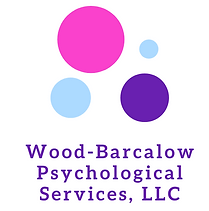-
Call: (614) 392-7975Call: (614) 392-7975
-
470 Olde Worthington Road Suite 200 Westerville, Ohio 43082470 Olde Worthington Road Suite 200 Westerville, Ohio 43082
Eating Disorder Assessment
What’s the purpose?
To receive a clinical interview and assessment to determine whether and what type of eating disorder might exist
How do I inquire about this service?
Call or email to schedule a free brief phone consultation to receive information about how the eating disorder assessment and feedback process works. If it is determined that this service is appropriate and desired, you will schedule an appointment(s).
Appropriate for individuals who:
- Experience problematic eating
- Have problems maintaining consistent nutrition intake
- Have body image disturbance that impacts nutritional intake and/or is related to problematic behaviors (e.g., self-induced vomiting, laxative misuse)
- Eat limited types and varieties of foods
- Have received feedback from others that their eating habits are concerning
What can I expect during the assessment and feedback?
- Initial appointment
- Completion of clinical interview and assessments
- 1-5 sessions (50 minutes) total
- Review findings during a feedback session that includes recommendations and resources
Eating Disorder Treatment
What types of eating disorders do you treat?
Anorexia Nervosa, Atypical Anorexia Nervosa, Bulimia Nervosa, Binge Eating Disorder, Avoidant Restrictive Food Intake Disorder (ARFID), Purging Disorder, Night Eating Syndrome, Rumination Disorder and Other Specified Feeding or Eating Disorders (OSFED)
What's the purpose of eating disorder treatment?
To reduce eating disorder behaviors and move toward a better quality of life
How do I inquire about this service?
Call or email to schedule a free brief phone consultation to receive information about how eating disorder treatment works. If it is determined that this service is appropriate and desired, you will schedule an initial appointment.
What evidence-based treatment practices do you offer?
- Enhanced Cognitive Behavior Therapy (CBT-E)
- Cognitive Behavioral Therapy for Avoidant/Restrictive Food Intake Disorder (CBT-AR)
- Family Based Treatment (FBT; also known as the Maudsley Method)
Eating disorder treatment is appropriate for individuals who:
- Have been diagnosed with problematic eating or an eating disorder
- Want specialized eating disorder care
- Are willing to commit to an episode of care for treatment
- Are willing to involve necessary providers to assist with recovery (e.g., pediatrician, primary care provider, psychiatrist, dietitian)
- Are willing to involve trusted loved ones in the recovery process
- Meet criteria for an outpatient level of care as defined by the American Psychiatric Association (APA) Guidelines
Not intended for individuals who:
- Have active eating disorder symptoms that require intensive treatment
- Are not interested in working on their eating disorder
- Are engaging in active substance use or dependence that impacts ability to focus on eating disorder recovery
What can I expect during eating disorder treatment?
- Coordination with medical providers (e.g., pediatrician, primary care provider, psychiatrist, dietitian) including signed releases of information
- Inclusion of family members/loved ones when indicated/desired
- Problem & goal identification
- Treatment planning
- Eating disorder interventions
- Wrap-up of treatment, review skills
- Booster sessions (if/when needed)
- Referral to a higher level of care if/when indicated
What is your experience treating individuals with eating disorders?
- Nearly 20 years providing eating disorder treatment
- Trained at The Center for Balanced Living (Columbus, OH), Laureate Psychiatric Clinic & Hospital (Tulsa, OK), and Stanford University (Palo Alto, CA)
- Provided specialty eating disorder treatment at all levels of care: inpatient, residential, partial hospitalization, intensive outpatient and outpatient services
- Assisted individuals of all genders from ages 12-76 years
